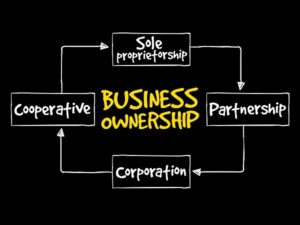Interested in starting a business in Minnesota? We have several types of business entities to choose from, each with its own requirements, advantages, and disadvantages. Knowing which entity to choose requires knowledge of those differences, and the advice of an experienced attorney certainly helps.
Sole proprietorship
This one-owner business is fairly easy and inexpensive to form since it is not subject to as many rules and regulations as some of the other entities. It also does not safeguard its owner’s personal assets from liability as well as some of your other options. Sole proprietors must file a Certificate of Assumed Name if the business name is anything other than the name of the owner. For example, if John Smith starts a company named St. Cloud Plumbing, he needs to file a Certificate of Assumed Name. For tax purposes, income and losses can be reported on Form 1040, Schedule C.
Partnership
A partnership has two or more owners and may be set up as a limited, limited liability, or limited liability limited partnership. The owners’ protection from liability depends on the type of partnership selected. If the company’s name does not include the names of the partners, a Certificate of Assumed Name must be filed with the Secretary of State. For tax purposes, partnerships file federal partnership returns and Minnesota partnership returns.
C Corporation
C corporations allow owners to limit their legal and financial liabilities. This business entity incorporates by filing documents with the Office of the Secretary of State, then obtains federal and state tax ID numbers. C corporations also file federal and Minnesota tax forms.
S Corporation
This business entity elects to pass corporate income, losses, deductions, and credits through to their shareholders for federal tax purposes. After filing incorporation documents with the state and obtaining tax ID numbers, a corporation must meet IRS requirements to be considered an S corporation. S corporations file federal and state S corporation tax returns, and the IRS Form 2553, Election by Small Business Corporation.
Limited liability company (LLC)
The LLC is one of the most popular business entities in Minnesota, in part because personal liability is limited. LLCs are required to file documents with the Office of the Secretary of State and apply for Minnesota and federal tax ID numbers. Minnesota 322C, which affects LLCs, was becomes applicable to all LLCs on January 1, 2018. Taxation is determined by the number of members, but LLCs with one member can be treated as sole proprietors.
Ready to Go?
Factors considered when choosing a business entity include personal liability, ease of operation, access to capital, corporate governance, and taxation. Choosing the right entity can have a big impact on how a business operates and affects its owners.
We’ve helped many clients take that important first step toward starting a business. If you need assistance, please contact us at 612.888.1000. Though located in Minneapolis, our clients come from communities throughout Minnesota and nationwide.

